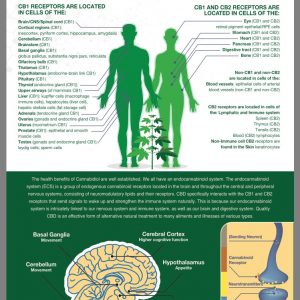“A good and proper diet in disease is worth a hundred medicines and no amount of medication can do good to a patient who does not observe a strict regimen of diet.”- Charaka Samhita (ca. 300 A.D.)
Acid indigestion is one of the leading complaints by millions of Americans and the cost of over-the-counter and prescription drug treatment totals millions of dollars a year and keeps rising! But these treatments are classified as a “quick fix,” relieving and hiding the symptoms only for yet another attack to come sooner than later. Why not arrest the problem for good and live a healthy and comfortable life free of acid indigestion! Here’s what you can do, so start today and change your life for the better!
What causes Acid Indigestion?
–Poor eating habits
-Eating to quickly
-Not chewing food adequately and properly
-Drinking too much water during meals
-Overeating
-Poor food combining
-Weakened digestion
-Eating too closely to bedtime
What Can You Do to Arrest Your Discomfort?
With proper dietary modifications, attention to your diet, and herbal treatment, your acid indigestion can be a faint memory of the past. A balanced diet is essential to health and wellness and constructing such a diet into your life will be a blessing for years to come. Our digestive system must be worked in the right manner in order to function properly. Foods that are too easy or too difficult to digest will wreak havoc on the body and cause weakness. A proper diet combining Primary, Secondary, and Tertiary Foods will bring balance and healing to digestion and throughout the body.
Primary Foods should include:
Whole Grains (20%-30% of the diet)
Protein- animal, tofu, tempeh, beans (20%-30% of the diet keeping in mind that beans are also carbohydrates and should be minimally consumed while tofu and tempeh should be highly consumed in a vegetarian diet)
Secondary Foods should include:
Fresh Seasonal Vegetables- mostly lightly cooked (30%-40% of the diet) (30%-40% of the diet)
Tertiary Foods should include:
Dairy, eggs, and fruits (5%-10% of the diet)
Fats and Oils-olive, sesame, ghee (2% of the diet)
The Role of Vitamins, Proteins, and Fats in Your Diet
Again, I must stress that proper balance within the diet is essential for health and wellness. We have been given foods and herbs that supply our bodies with all necessary nutrients. With proper diet and nutrition, we can achieve optimum health without popping pills and over-the-counter supplements and vitamins.
Think about it!
What kept people healthy and vibrant thousands of years ago? It certainly wasn’t the drug store, right?
Hunting and gathering, preparing foods properly, and maintaining nourishment (not in excess) has ALWAYS been the key to survival and health. The vitamins, minerals, proteins, and fats that we need in our daily diet are all accessible from the foods we eat. Making healthy lifestyle and dietary choices are crucial to preventing acid indigestion and living a pain free life.
Vitamins and Minerals can be obtained from a properly balanced diet guided by the above nutritional philosophy. Most deficiencies are caused by a breakdown of physical metabolism rather than a particular nutrient missing from the foods we eat. If our diet is in balance, our body has the capacity to produce enough of the necessary vitamins needed to maintain health.
(Tierra, 1998)
Vegetarian diets may require additional mineral intake which can easily be achieved through sea vegetables such as nori, wakame, arame, kelp, and many others.
Meat has always been the choice source of protein, but although a small amount of meat is acceptable (2-4 ounces daily), vegetable sources of protein are a much better and healthier choice. Due to high toxicity levels in animal protein due to hormones and drugs administered to the animals, organic meat is necessary when consuming animal protein.
Beans are an excellent source of protein, they are high in essential fats and oils, and provide energy to the body. Beans should be soaked before preparing and consuming and it is recommended to combine beans with a grain to prevent unnecessary gas and digestive discomfort.
Miso, a fermented food from soybeans, is an excellent protein choice and provides essential intestinal bacteria, minerals, and fats. Considered a very therapeutic food, miso is easily digested and aids in recovery for the ill, especially acid indigestion due to the intestinal flora that it provides and replenishes the body with.
Tofu and Tempeh are also excellent sources of vegetable protein. Vegetables provide essential vitamins and minerals and fruit, when eaten with a peal of citrus fruit or a few apple seeds, can provide excellent vitamins and minerals. Because fruit is the most easily and quickly digested food, fruit should be eaten alone to assure proper digestion and prevent digestive discomfort.
Sesame seeds and sesame oil (and tahini) are all excellent choices for fat in the diet.
Did You Know That Your Kitchen is Your Herbal Medicine Cabinet?
With proper diet and the use of herbs, you can achieve wellness for you and your family for years to come. Many herbs have the power to correct deficiencies and heal through cleansing, toning, and providing vitamins and minerals that your body needs. Most herbal spices are carminatives (preventing and relieving gas) stimulants and aids to digestion. (Tierra, 1998) Many ailments, including acid indigestion, are attributable to blockages in the natural flow of blood, lymph, nutrients (digestion and assimilation), waste products (from food and metabolism) or nerve energy. Stimulants are an important means of breaking through these blockages. These are exactly what you need to arrest your acid indigestion and assure proper digestion. Below are a few of the most useful medicinal spices that should be included in your diet and treatment regimen and the proper preparations. All of these kitchen herbs are an excellent addition to food preparation and meals for health and FLAVOR!
Anise- Taken as a tea, 3 teaspoons of crushed anise seeds and 1 cup of boiling water, steeped for 20 minutes to treat flatulence.
Basil- Taken as a tea, 1 ounce of basil leaves, a pint of water, simmered for 20 minutes to treat indigestion.
Bay Leaves- 1-2 leaves added to a meal will prevent gas and indigestion.
Caraway- An ounce of crushed seeds steeped in a pint of boiling water and then administered in 2 tablespoon doses frequently will treat indigestion and gas.
Cayenne- Taken 3 times per day, ¼ teaspoon with water will help to prevent indigestion through its warming nature and amazing first aid qualities.
Cinnamon- Simmered in milk with honey added, cinnamon will diminish indigestion and gas and give balance throughout the body.
Cloves- These are a great addition to treatment, as they aid the entire digestive system. Added to any of the recipes, cloves are a super way to warm the body and digestive system.
Fenugreek- An excellent treatment for ulcers and inflammation of the stomach, fenugreek is an essential treatment for acid indigestion to treat and heal damage. 1 Once of crushed seeds simmered in water for at least one hour and then administered will treat acid indigestion.
Ginger- The most beneficial stimulant to the stomach and digestive tract, 1 ounce grated and simmered in a pint of water and then drank will aid in healing and relieving acid indigestion.
The above herbs may also be combined as pinches, perhaps 3 or more, to total 1 teaspoon. These can be placed in a glass of water and consumed for relief.
An excellent decoction for stomach Acidity in addition to the above is:
1 part Dandelion root
1 part Slippery elm
1/8 part Goldenseal
1/8 part Calamus root
Simmered in water for at least one hour and then consumed every hour or as needed.
(Tierra, 1998)
It’s Time to Gain Awareness and Take Control of Your Health!
References
Tierra, Michael (1998). The Way of Herbs. New York: Simon and Schuster Inc.

